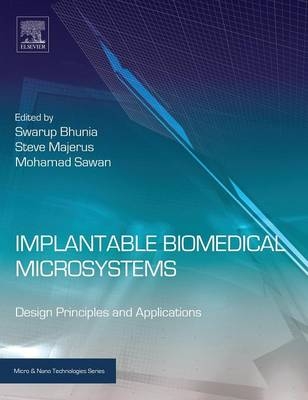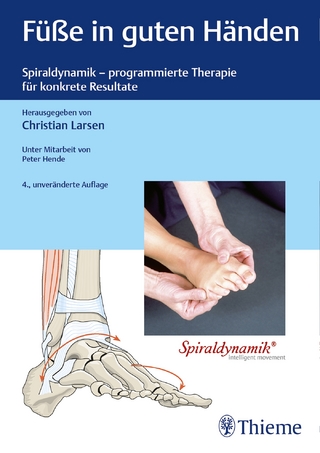
Implantable Biomedical Microsystems
William Andrew Publishing (Verlag)
978-0-323-26208-8 (ISBN)
Research and innovation in areas such as circuits, microsystems, packaging, biocompatibility, miniaturization, power supplies, remote control, reliability, and lifespan are leading to a rapid increase in the range of devices and corresponding applications in the field of wearable and implantable biomedical microsystems, which are used for monitoring, diagnosing, and controlling the health conditions of the human body.
This book provides comprehensive coverage of the fundamental design principles and validation for implantable microsystems, as well as several major application areas. Each component in an implantable device is described in details, and major case studies demonstrate how these systems can be optimized for specific design objectives.
The case studies include applications of implantable neural signal processors, brain-machine interface (BMI) systems intended for both data recording and treatment, neural prosthesis, bladder pressure monitoring for treating urinary incontinence, implantable imaging devices for early detection and diagnosis of diseases as well as electrical conduction block of peripheral nerve for chronic pain management.
Implantable Biomedical Microsystems is the first comprehensive coverage of bioimplantable system design providing an invaluable information source for researchers in Biomedical, Electrical, Computer, Systems, and Mechanical Engineering as well as engineers involved in design and development of wearable and implantable bioelectronic devices and, more generally, teams working on low-power microsystems and their corresponding wireless energy and data links.
Swarup Bhunia is a professor in the department of Electrical and Computer Engineering at the University of Florida. He has more than ten years of research and development experience with over 200 publications in peer-reviewed journals and premier conferences. His research interests include hardware security and trust, adaptive nanocomputing and novel test methodologies. Dr. Bhunia received the IBM Faculty Award (2013), National Science Foundation career development award (2011), Semiconductor Research Corporation Inventor Recognition Award (2009), and SRC technical excellence award (2005), and several best paper awards/nominations. He has been serving as an associate editor of IEEE Transactions on CAD, IEEE Transactions on Multi-Scale Computing Systems, ACM Journal of Emerging Technologies, and Journal of Low Power Electronics; served as guest editor of IEEE Design & Test of Computers (2010, 2013) and IEEE Journal on Emerging and Selected Topics in Circuits and Systems (2014). He is a senior member of IEEE.
1. Introduction 2. Electrical Interfaces for Recording, Stimulation and Sensing 3. Analog Front-End and Telemetry Systems 4. Signal Processing Hardware 5. Energy Management Integrated Circuits for Wireless Power Transmission 6. System Integration and Packaging 7. Clinical and Regulatory Considerations of Implantable Medical Devices 8. Reliability and Security of Implantable and Wearable Medical Devices 9. Electrical Biosensors: Peripheral Nerve Sensors 10. Electrodes for electrical conduction block of peripheral nerve 11. Implantable Bladder Pressure Sensor for Chronic Application: A Case Study 12. Neural Recording Interfaces for Intracortical Implants 13. Implantable Imaging System for Automated Monitoring of Internal Organs 14. Conclusions and Future Directions
| Reihe/Serie | Micro & Nano Technologies |
|---|---|
| Verlagsort | Norwich |
| Sprache | englisch |
| Maße | 191 x 235 mm |
| Gewicht | 910 g |
| Themenwelt | Medizin / Pharmazie ► Physiotherapie / Ergotherapie ► Orthopädie |
| Technik ► Medizintechnik | |
| ISBN-10 | 0-323-26208-2 / 0323262082 |
| ISBN-13 | 978-0-323-26208-8 / 9780323262088 |
| Zustand | Neuware |
| Haben Sie eine Frage zum Produkt? |
aus dem Bereich


